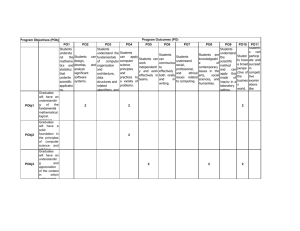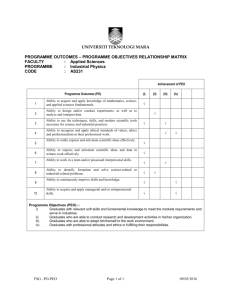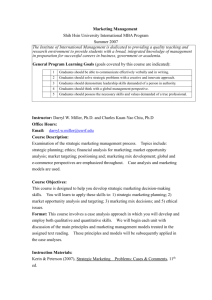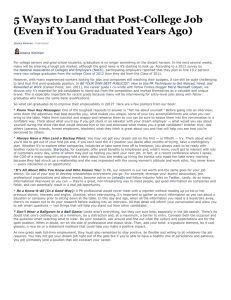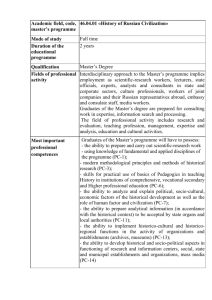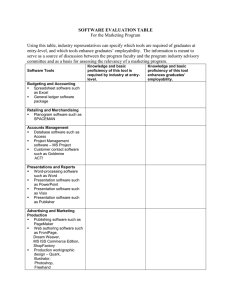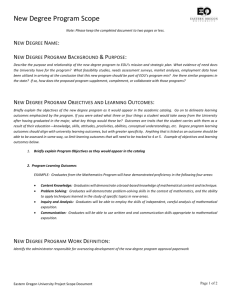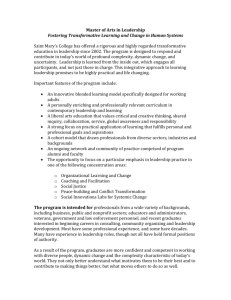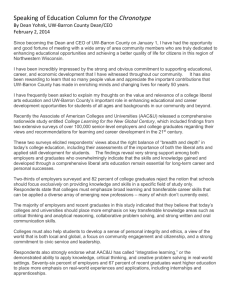Employability Skills
advertisement
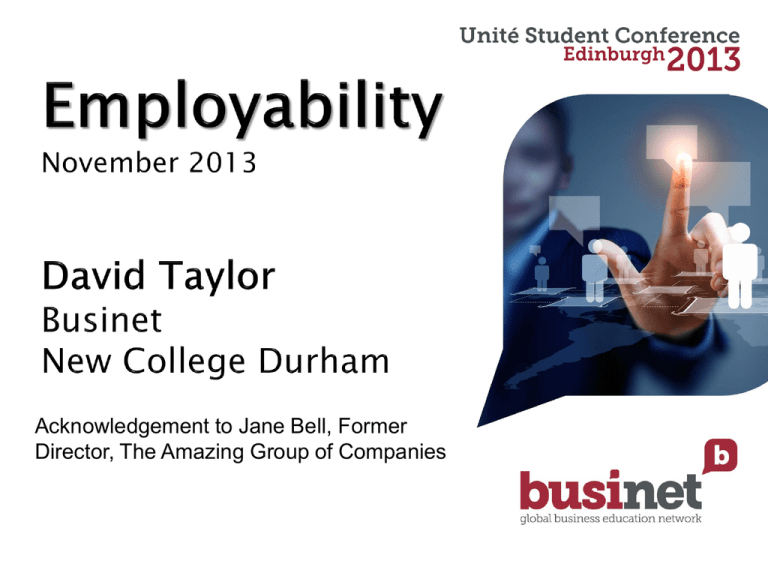
Acknowledgement to Jane Bell, Former Director, The Amazing Group of Companies Global businesses are increasingly seeking graduates who have a global awareness and have worked or studied overseas as part of their learning UK graduates are missing out as they are now less likely to study overseas International graduates consider that they are more likely to have higher paid jobs at more senior positions and spend less time seeking those jobs, than either UK graduates, or those in their home country who did not travel British businesses have global competency models and recruit globally for their global and local businesses Quotation: “Global Business .. Global Graduates” The Council for Industry and Higher Education Knowledge based economies Competitive global markets With a highly mobile workforce Widening participation Lifelong learning Enhancing employability Global Businesses are increasingly recruiting globally. Graduates who have international experience are highly employable because they have demonstrated that the have drive, resilience and inter-cultural sensitivities as well as language skills. They are selfselecting elite. “As students and graduates expand their horizons they in turn become more enterprising, innovative, socially aware and better global citizens. It is these qualities that global businesses, and we hope increasingly societies, seek in their future leaders.” Just what is it, and why do we need it??? It belongs to you… It is your property… But what is it? It is not the same as getting employment, or being employed. … how an individual grasps the opportunities that are before them … how someone reflects on their experiences ... how someone packages and presents the skills they have. the knowledge, skills and attitudes that will support future development end employment. Fundamental skills Personal skills Team skills Communication Managing Information Numerical Skills Problem solving Positive attitude and behaviours Taking responsibility Adaptability Continuous learning Communication skills Team-working skills Integrity Intellectual ability Confidence Character/Personality Planning and organisational skills Literacy (good writing skills) Numeracy (good with numbers) Analysis and decision-making skills 86% 85% 83% 81% 80% 75% 74% 71% 68% 67% Creativity skills to generate ideas Risk taking skills to be entrepreneurial Relationship-building skills to develop the relationships that support innovation Implementation skills to turn ideas into products Can employers realistically expect new starters to have this huge range – when so many skills take years of experience at work to develop? There may be a methodology – but that depends on the situation. Perhaps it is more realistic for employers to recognise that new entrants cannot possibly have all that it required of them… … and for graduating students to develop an accurate awareness of what they can contribute. There are 3 easy (!) steps… The development of one’s employability attributes – and most importantly – mapping examples to the list typically sought by employers The development of one’s self promotional skills The willingness to reflect and LEARN Through good quality work placement and part time work where you can develop the skills alongside theoretical understanding. Reflect on what you achieve and your actions Evaluation of performance and actions based on sound reflection Learn Develop Personal Development Planning (PDP)



